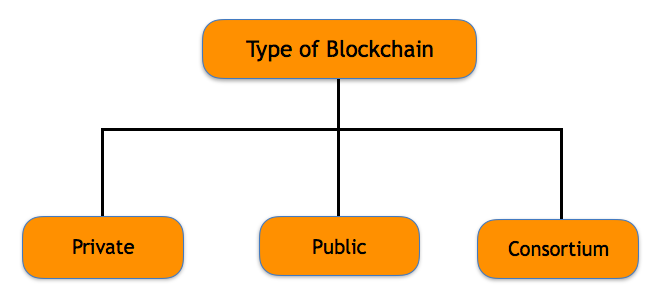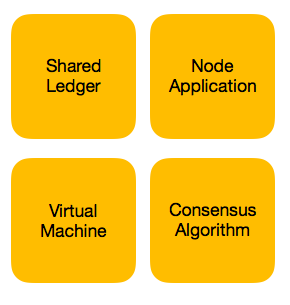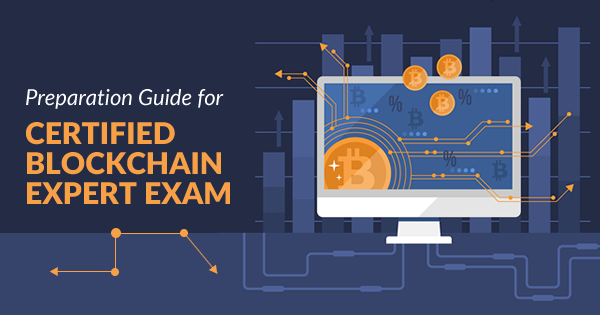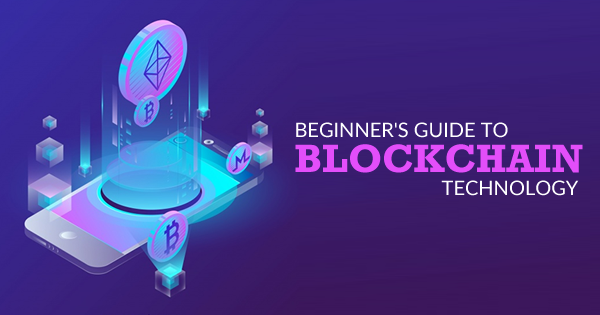We have now come to the era of new technology which if implemented successfully will bring a revolution in the field of internet. Investors and other big companies are investing a huge amount of cash in this technology, named Blockchain Technology. In the coming future, it could become one of the seamless technology, the web has ever experienced. It is also a disruptive technology that could drastically destroy the structure of present industries.
Top 30 Blockchain Interview Questions
If you are among one of the early birds who has understood the importance of Blockchain and are ready to dive in, this list of top Blockchain interview question and answers has been composed for you only. These questions are collected with years of experience in the Blockchain field which are asked by interviewers.
For the convenience of our fellow readers, we have divided this Blockchain tutorial into three sets of 10 questions each. Where the first set will deal with Blockchain interview questions for freshers with some simple and easy concepts. The second part will deal with Blockchain interview questions for experienced and the later section is Blockchain interview questions for developers.
Blockchain Interview Questions for Freshers
This section consists of the basic blockchain interview questions that you may come across in the interview as a beginner. So, if you are new to the world of blockchain technology or have little experience, this set of blockchain interview questions will help you crack the interview.
1. What is Blockchain technology? State some of the benefits of Blockchain?
Answer: The blockchain is a decentralized and distributed public ledger which cannot be altered or it is very hard to change once the ledger enters the database system. All the transactions in a Blockchain are secured using algorithms based on cryptography. When a record enters in the system first it is validated over the distributed network and then stored in a block. So if you want to alter the records then you have to travel from the last block to the genesis block or block “0” which is very difficult.
The main benefits of the blockchain technology are:
1. Immutability: There are multiple records created and stored of a single block over the peer-to-peer network so it is very difficult to alter something in the block.
2. Security: The transactions are very secure as it is based on cryptography.
3. Transparency & Resiliency: As all the transactions are stored over a distributed network so anyone can view it, which makes blockchain transparent and resilient.
2. What are the different types of Blockchain available for transactions?
Answer: There are three types of Blockchain as defined below:
- Public: This type of Blockchain is available for all and does not need any kind of permission to join and a user can download the required software and start running the node on their own. E.g. Bitcoin, Ethereum, etc.
- Private: In a private Blockchain where all the permission are kept centralized to an organization and only authorized persons are responsible to add and verify the blocks. E.g. multichain, locks tax, etc.
- Consortium: This type of Blockchain is a private Blockchain managed by a group of individuals or consortium and only specific predefined nodes are authorized to add and verify the blocks. E.g. Hyperledger.
3. Define a Node in a Blockchain.
Answer: A node is a system or a computer which is essentially connected to a Blockchain network used to process transactions.
4. Define Consensus and tell the commonly used consensus models.
Answer: A consensus is a general agreement which is used to validate the transactions while following a protocol. A consensus is mainly of two types –
- Proof of work
- Proof of stake
Also Read: Beginner’s Guide to Blockchain Technology
5. What is a block in a Blockchain?
Answer: The blockchain is a ledger which contains a list of transactions and these transactions are stored in the form of record in a block. Whenever a new transaction is done then a new block gets added to a genesis block and so on. In this way, it forms a chain of blocks called Blockchain.
6. What is a genesis block?
Answer: Genesis is the first block that is created in a Blockchain after which the blocks are added as the transactions are completed and verified in a system.
7. What are the components of a block in Bitcoin?
Answer: A block consists of three main components as described below:
- Hash Pointer
- Timestamp
- Merkel Tree
8. Enlist the difference between a traditional database and Blockchain database.
Answer: The difference between a traditional database and blockchain database is as follows:
1. Storage of Records: In a traditional system the records are centralized whereas in Blockchain the records are decentralized.
2. Operations Done: In a Blockchain system, you can only perform insert operations whereas in the traditional system you can read, edit, create and update the transactions.
3. Validations of transactions: You can validate any number of transactions on the network in a Blockchain whereas in the traditional database only specific nodes are allowed to validate the transactions.
9. What is Ethereum?
Answer: Ethereum is a software platform based on blockchain technology where a developer can build and implement decentralized apps. It is a distributed public blockchain network just like bitcoin. In the ethereum blockchain, the users work to earn Ether, that is a type of crypto token which fuels the network.
10. What are Ethereum Smart Contracts and in which language is Ethereum written?
Answer: A Smart Contract is a set of program that gets automatically executed on meeting the certain requirements of Blockchain. Ethereum is generally written in Solidity programming language.
Blockchain Interview Questions for Experienced
So, after covering top blockchain interview questions for freshers, here we move to the best blockchain interview questions for experienced candidates. This set of interview questions will make you ready to ace the blockchain interview.
11. Mention the types of record that can be kept in Blockchain.
Answer: In Blockchain, you can keep any number of records. Few of the records that can be kept in the blockchain ledger are:
1. Medical Transactions and history
2. The identity of numerous persons
3. Several numbers of events that take place in an organization and organizational records
4. Management records of companies that can be accessed from anywhere in the world with proper secure transactions
5. Documents that are to be kept at high-level security
12. Mention some of the benefits of Blockchain in business.
Answer: European Banks have already launched their projects to use this technology. The international payments system VISA has also joined them. Blockchain gives several advantages to the financial sector some of which are listed below:
- Money Transfer will become faster and cheaper payments are possible and significantly reduce their costs.
- With the help of the Smart Contracts are computer programs which facilitate to verify and negotiation of the agreement.
- In stock exchange Blockchain can remove brokers as intermediaries and decentralize the stock exchange system.
13. What do you mean by a Hard Fork?
Answer: Hard Fork is referred to a change of rule in Blockchain where the software that is used to validate will validate according to the new rules and the stands invalid. The nodes need to upgrade their software to work with the new rules.
14. What is Mining referred to as in Bitcoin Blockchain?
Answer: Mining is a process by which all the transactions done in blockchain are first verified and then added to the block. For blockchain mining, special nodes are dedicated called miners which use cryptographic algorithms for the validation and adding the transactions to the block.
Preparing for Certified Blockchain Expert (CBE) exam? Check your current level of preparation with the Whizlabs Certified Blockchain Expert Practice Tests.
15. Mention the basic components of the Blockchain Ecosystem.
Answer: There are four basic components of Blockchain ecosystem as explained here:
- Shared Ledger: It is a distributed data structure shared among peers managed inside Node application.
- Node Application: Each of the nodes is installed and run on a computer to become a part of the blockchain network.
- Virtual Machine: Here the implementation of instruction takes place and every participant runs that VM.
- Consensus Algorithm: It is implemented as a part of node application which provides the rules for validation of transactions.
16. What do you know about Information Processing?
Answer: Huge amounts of data are shared on the network. Before sharing the information on the network it has to be changed in formats that are easily transmitted over channels without any breach of security. So, the amount of work done in converting the information over the channel for the receiver and sender is called information processing.
17. What are the challenges faced during Information Processing?
Answer: The basic challenge is to secure the information during the information transfer. Another big challenge is to process that bulk load of information which can affect the performance and quality of information.
18. Enlist some of the platforms used for the development of Blockchain applications.
Answer: As blockchain is a new kind of technology so everyone is experimenting a lot with different platforms. Some of the popular platforms are Ehereum, Corda, IOTA, Hyperledger Fabric, Cardano, Quorum, etc.
19. Mention the Cryptographic algorithms used in Blockchain.
Answer: Here are some of the widely used cryptographic algorithms:
- Triple DES: DES stands for digital encryption system which uses 3 different keys of 56 bits.
- RSA: It is used in several areas in the digital certificate which is a public key encryption algorithm to encrypt the information transferred on the internet.
- Blowfish: It is highly effective and works with great speed which encrypts the cipher messages individually.
- Twofish: It is similar to blowfish with keys of length 256 bits.
- AES: Of all algorithms, AES is the strongest encryption algorithm to breach out as it uses 192 and 256 length bit keys for heavy encryption.
20. What is an ICO?
Answer: ICO or an Initial Coin Offering is a way to raise the company’s capital. The company create an additional token or a coin and sell it to the investors in exchange for the cash or other cryptocurrencies usually ethereum and bitcoin. You must take care in ICO that these are very risky and have a high risk of a scam.
Blockchain Interview Questions for Developers
In this section, we will discuss some of the best Blockchain interview questions a developer should know to crack the interview. There is a huge demand for the developers in the blockchain, so if you are the one, a right preparation will lead you toward the success. So, let’s read out these latest blockchain interview questions.
21. What is Solidity and what are the languages a Smart Contract can be written?
Answer: Solidity is a programming language used for writing Smart contracts on various Blockchain platforms. The remix is the IDE for Solidity. Smart Contract is written mainly in Solidity, Serpent, and Lisp.
22. What is a Metal mask and what is the type of Node Metamask uses?
Answer: The Metal mask is software used to interlink the Ethereum network with the networks of the browser.
23. Explain pragma and provide its syntax.
Answer: Pragma is a version of Solidity that will be used by the code that is written in the solidity. For using solidity as a compiler and writing smart contracts the version should be higher than 0.4.0. Every Smart contract starts with pragma only.
Syntax: version pragma ^0.4.00.
Preparing to become a Certified Blockchain Expert? Follow this Certified Blockchain Expert preparation guide and get ready to pass the exam.
24. How to import source files in Solidity.
Answer: As we do the import in java language same as the syntax for importing files in solidity also. If you want to import the file at a global level, type the following syntax: import “filename”;
25. Where are the items stored in Solidity?
Answer: The items stored in the solidity are –
- Storage: it is the place where all the state variables are stored.
- Memory: it holds all the temporary values and it gets removed when a function is called.
- Stack: It is used to hold the local values which are small and are freely used. The amount of values stored in a stack is very limited.
Q26. What do you mean by Merkle trees and explain its importance in Blockchain?
Answer: Also called as the hash tree, Merkle tree is the fundamental part of a Blockchain. merkle tree uses cryptographic blocks which are used to securely transact large chunks of data. Both Ethereum and Bitcoin use Merkle trees.
The main advantage lies in the fact is we do not need to download every transaction and block.
27. What do you mean by 51% attack?
Answer: The blockchain is a chain of blocks that stores all transactional data in a period of time. Once the block enters the system it cannot be altered and the fraudulent data would be automatically rejected by network users. However, if 51% of the miners are controlled then a group of attackers can interfere with the process of recording of new blocks. They can block other users transactions and reverse it also. It is also known as double spending. A network that would allow double spending could suffer a loss of confidence. Then this kind of attack is called a 51% attack.
28. Name an alternative to Blockchain.
Answer: Hashgraph, but it is not yet open source.
29. What are events in Solidity?
Answer: An event allows contracts to return values to the user interface here an event function comes into action. Alternatively, if you want to create some synchronous trigger with data of your smart contract then an event is written in a program. They can also be used as a log in the system.
30. What is Inheritance in Solidity?
Answer: Multiple Inheritances is supported by solidity which includes polymorphism. In this only one contract gets executed while the code from all the other contracts gets inherited into the final contract.
Final Words
Interviews generally take candidates in stress but it’s not that difficult to ace the interview if you prepare with good resources. In order to clear a blockchain interview, it is required to prepare with the latest blockchain interview questions. So, we have covered the set of most common Blockchain interview questions with answers that will prove an invaluable asset to crack your interview.
Certification validates and thus demonstrates your knowledge in the domain; thus acts as an add-on in the interview. If you want to take a certification first Whizlabs practice test series available for Certified Blockchain Expert exam will help you clear the certification exam. So, joining us will help you in certification preparation as well in the interview preparation.
Join us today to have a bright future!
If you’ve come across any other question in your blockchain interview, add this in the comment section below we’ll be work to cover them here.
- Top 20 Questions To Prepare For Certified Kubernetes Administrator Exam - August 16, 2024
- 10 AWS Services to Master for the AWS Developer Associate Exam - August 14, 2024
- Exam Tips for AWS Machine Learning Specialty Certification - August 7, 2024
- Best 15+ AWS Developer Associate hands-on labs in 2024 - July 24, 2024
- Containers vs Virtual Machines: Differences You Should Know - June 24, 2024
- Databricks Launched World’s Most Capable Large Language Model (LLM) - April 26, 2024
- What are the storage options available in Microsoft Azure? - March 14, 2024
- User’s Guide to Getting Started with Google Kubernetes Engine - March 1, 2024






Great article like this require readers to think as they read. I took my time when going through the points made in this article. I agree with much this information.